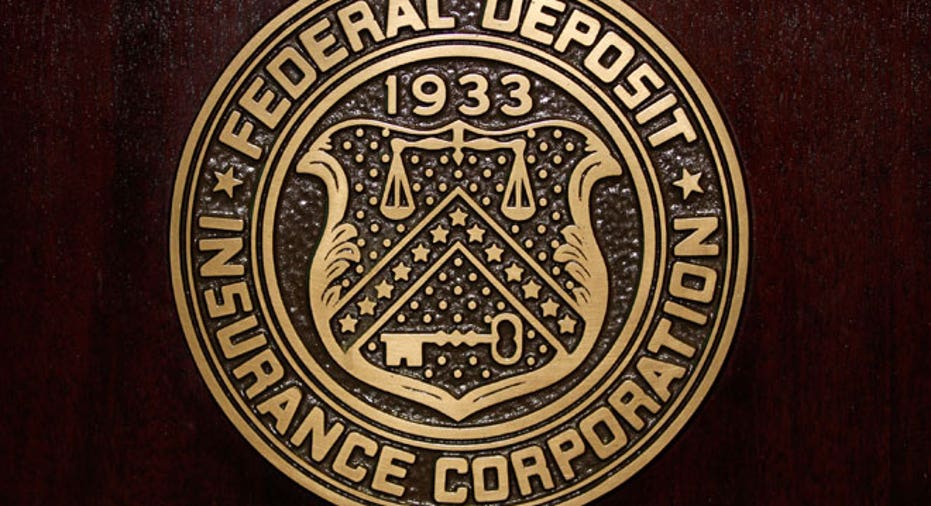Banks Lobbying to Extend Financial Crisis Deposit Guarantee Program

Worried about continued risks to the economy and financial system, community banks are lobbying Congress to extend a financial crisis program that provides federal guarantees for more than $1 trillion in large bank accounts mainly for businesses—nearly 15% of total U.S. bank deposits.
The Federal Deposit Insurance Corporation launched the Transaction Account Guarantee (TAG) program in October 2008 at the height of the financial crisis to help keep big customers that feared bank failures from withdrawing their cash. The FDIC covers the cost of the program through premiums it charges banks for deposit insurance, but taxpayers are the agency’s ultimate backstop.
TAG is set to expire at the end of the year. The Independent Community Bankers of America is leading a push to convince Congress to extend it for another five years, starting with 1,400 letters its members sent to lawmakers earlier this month.
“Because the global banking system and the economic recovery remain fragile and depositors remain risk averse, expiration of full insurance coverage for transaction accounts carries the risk of abrupt dislocation and other unintended consequences for a financial sector that is just regaining its footing,” ICBA said in a briefing paper on TAG. “Congress should not wait till the last minute to act. Full coverage for transaction accounts should be extended as soon as practical to provide certainty to banks and their depositors.”
The American Bankers Association, which represents major national banks along with many regional and smaller banks, is still weighing whether to support an extension of TAG, citing divided views among its members. But the issue is expected to come up at an FDIC conference on community banking on Thursday in Arlington, Va.
TAG now insures $1.2 trillion in deposits in excess of $250,000 in mainly non-interest bearing checking accounts--more than 700,000 of them, held by the nation’s largest corporations but also many medium and small businesses, as well as larger universities, charities, hospitals and local governments. Customers use the accounts for payrolls and other operating expenses.
Smaller banks in particular rely on such deposits to help finance their lending and other activities. But the nation’s top 19 banks – those with assets of more than $100 billion--control more than half of TAG account balances.
Because of hundreds of bank failures since 2008, TAG has paid out about $2.2 billion to protect those bigger deposits over the last three years, according to the FDIC. The agency collects about $14 billion a year in fees from more than 7,000 banks to fund all of its deposit insurance operations.
As part of its regular, permanent deposit insurance program, the FDIC insures all business and consumer accounts up to $250,000. During the financial crisis, Congress raised the limit from $100,000 to help maintain confidence in the financial system and deter customer “runs” on banks. After the FDIC extended TAG several times, Congress extended it to Dec. 31, 2012, in the Dodd-Frank financial reform legislation it approved in 2010.
“If full FDIC coverage ends abruptly, transaction account funds in excess of $250,000 will become ‘hot money’ that could flee an institution at the click of a mouse with uncertain economic consequences,” the ICBA briefing paper said, citing the debt crisis in Europe as one possible threat. “The shift in funds could destabilize the recovering banking system, curtail credit, and threaten the fragile economic recovery.”
The ICBA and ABA both noted that the industry bears the “full” cost of TAG through billions in annual deposit insurance premiums banks pay the FDIC. The agency has had a long standing credit line with the Treasury Department that it could tap in case of financial emergencies -- and which it has never done. The credit line is currently $100 billion.
A banking industry official said initial reaction among top banking committee leaders in Congress to the idea of extending TAG for some additional period has been “very good.”
But officials are sensitive to possible voter perception that the industry could be viewed as asking Congress for additional taxpayer backing of big bailouts in the future. The $700 billion TARP bank bailout was unpopular with voters, though banks have repaid most of the TARP funding at a profit to the Treasury.
“Given the environment on banking, it’s probably going to have a tough time,” said Mark Calabria, director of financial regulation studies at the Cato Institute. “I would probably put the odds at less than 50-50 that it’s going to get extended.”
TAG specifically -- and deposit insurance in general -- “is a bailout-free zone,” said Paul Merski, ICBA executive vice president for government relations and the organization's chief economist. “It’s not taxpayer money, it’s not government money -- it’s banks paying the fee to have this insurance…The FDIC (insurance) fund has never cost taxpayers a penny.”
In a letter to acting FDIC chairman Martin Gruenberg last week, Frank Keating, the ABA’s president and CEO, said ABA members held a “range of views” on whether to extend TAG again.
“There is no question that many banks found the original program…to be very helpful in maintaining liquidity,” Keating wrote. “While liquidity needs are far less today for most banks, there are certainly institutions that believe the need for the program still exists. Other banks have said that the program has served its purpose to assure funding in a crisis, but as the crisis is largely behind us, the need for the program has diminished.”
Keating said some of his member banks favor a voluntary FDIC insurance program for big deposits. The agency originally set TAG up as a non-mandatory program with separate fees in 2008 before Congress extended it to the entire industry under the FDIC’s general insurance operations. The agency collected $1.2 billion in premiums from banks when TAG was a stand-alone operation.
An FDIC spokesperson declined to comment on the proposal. You can read more about it here.



















